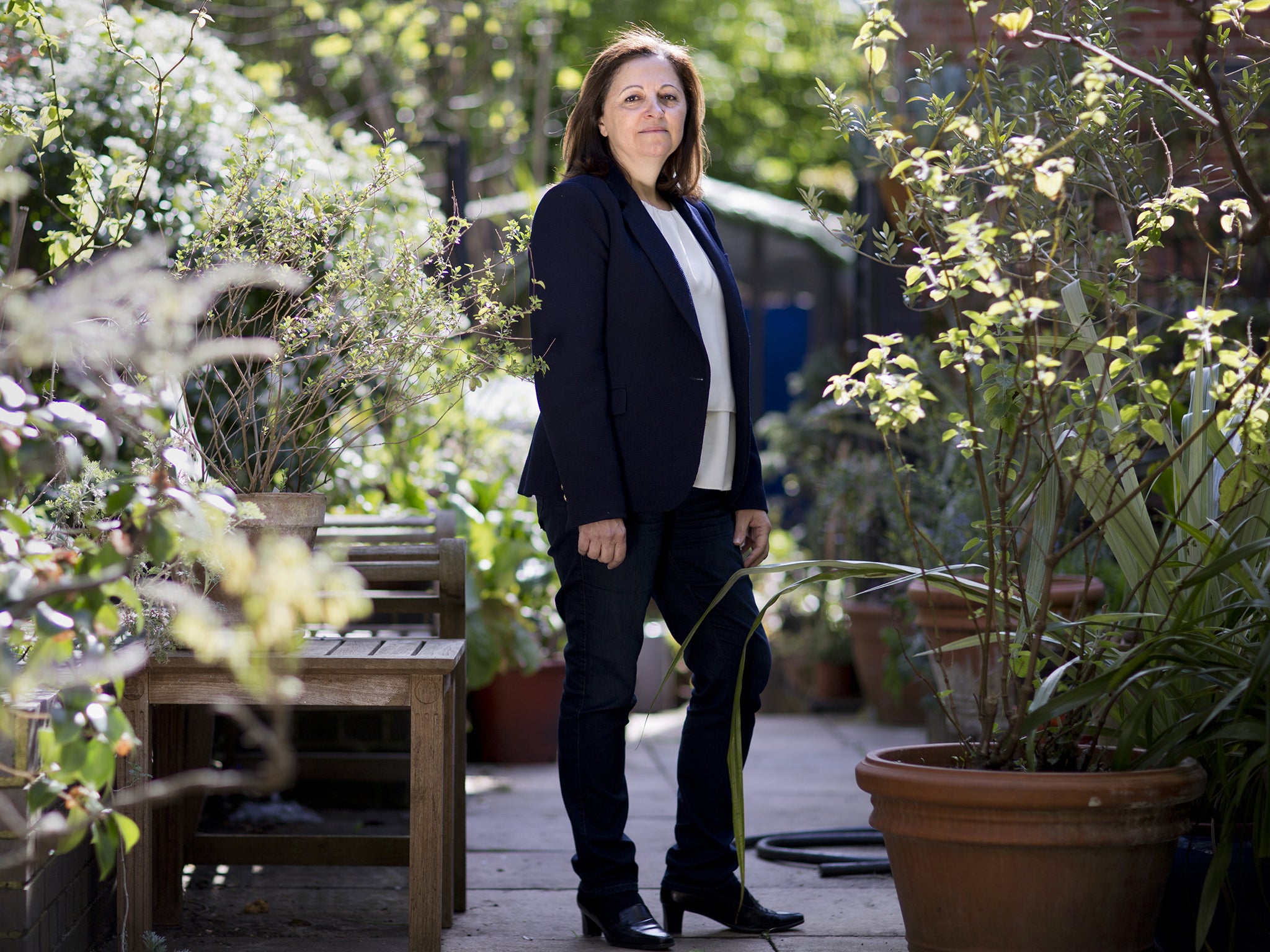Nazek Ramadan interview: 'If a politician is blaming migrants, lots of people will believe this'
Campaigner with one of the organisations behind ‘I Am An Immigrant’ posters alarmed at Ukip’s rhetoric

Your support helps us to tell the story
From reproductive rights to climate change to Big Tech, The Independent is on the ground when the story is developing. Whether it's investigating the financials of Elon Musk's pro-Trump PAC or producing our latest documentary, 'The A Word', which shines a light on the American women fighting for reproductive rights, we know how important it is to parse out the facts from the messaging.
At such a critical moment in US history, we need reporters on the ground. Your donation allows us to keep sending journalists to speak to both sides of the story.
The Independent is trusted by Americans across the entire political spectrum. And unlike many other quality news outlets, we choose not to lock Americans out of our reporting and analysis with paywalls. We believe quality journalism should be available to everyone, paid for by those who can afford it.
Your support makes all the difference.Nazek Ramadan knows what it is like to feel unwanted in Britain. The director of Migrant Voice, the organisation fighting back against anti-immigrant rhetoric in the run-up to the election, faced repeated abuse when she first arrived in the UK.
Fleeing Lebanon with her husband and two young children in the mid-1980s, she ended up in east London, where strangers shouted “dirty Arab” in the street and set their dogs on her. Her neighbours even got their toddler to push a lit cigarette through her letterbox, his parents egging him on and giggling from the pavement as it burned the carpet.
It is incidents like these that inspired Ms Ramadan, 53, to set up Migrant Voice, a charity run by immigrants to give them a voice in the increasingly sour immigration debate. It is one of the organisations responsible for the “I Am An Immigrant” posters springing up on billboards across the country which promote the achievements and contributions of foreigners to Britain. At the same time, in London, Birmingham and Glasgow, its members are giving out a new newspaper. The freesheet, also called Migrant Voice, tells some of the uplifting and under-reported stories of immigrants in Britain.
Since those racist encounters of decades ago, Ms Ramadan believes the British public have become more tolerant – though she still hears stories of abuse from her members. But it is politicians and the media she worries most about today. “I’m worried more about the policies than ordinary people now,” she says. “The policies towards migrants 30 years ago were better. They are much more strict now. The worst is indefinite detention, there’s no limit on the time you can detain someone for immigration purposes. Family migration rules are awful too because they are splitting up families. We know people who’ve been separated from their children for 10, 11 years or more.”
The rise of Ukip – and the way it has steered the “acceptable” rhetoric about migration – has also alarmed her. “Ukip have created a platform or an excuse for people who don’t like migrants to speak openly about their views and feel that it’s OK and not xenophobic,” she says. “The way they speak is unhelpful. There’s so much scapegoating. If a politician is blaming migrants, lots of people will believe this is true. There’s a clear relationship between what a politician says, what the media covers and what the public think and say and react.”
This souring of the public discourse made her determined to fight back. “The message we’re trying to get across is that migrants are an essential part of British society; they are citizens. Although they come from another part, they are contributing and they are a part of the community. The fireman is here to save everybody, not just the migrants.”
She understands the problems many of her members face adjusting to life in Britain after facing traumas in their home country, having been forced to leave Lebanon during its civil war. The first three weeks of her son’s life were spent in an underground shelter – having been carried out of hospital under gunfire.
Her experiences made her determined to fight for those who have gone through so much to reach Britain. “It’s better that we work together to address the real problems in society,” she says, “ rather than blaming one group who aren’t heard because they don’t speak up.”
Join our commenting forum
Join thought-provoking conversations, follow other Independent readers and see their replies
Comments